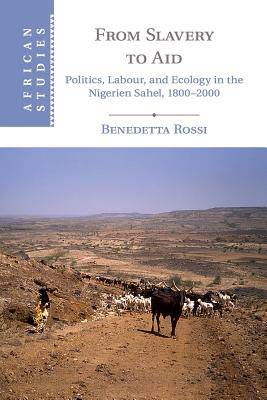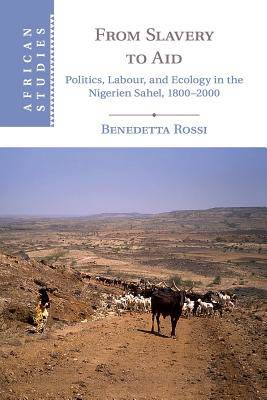
- Afhalen na 1 uur in een winkel met voorraad
- Gratis thuislevering in België vanaf € 30
- Ruim aanbod met 7 miljoen producten
- Afhalen na 1 uur in een winkel met voorraad
- Gratis thuislevering in België vanaf € 30
- Ruim aanbod met 7 miljoen producten
Zoeken
€ 67,95
+ 135 punten
Omschrijving
From Slavery to Aid engages two major themes in African historiography, the slow death of slavery and the evolution of international development, and reveals their interrelation in the social history of the region of Ader in the Nigerien Sahel. Benedetta Rossi traces the historical transformations that turned a society where slavery was a fundamental institution into one governed by the goals and methods of 'aid'. Over an impressive sweep of time - from the pre-colonial power of the Caliphate of Sokoto to the aid-driven governments of the present - this study explores the problem that has remained the central conundrum throughout Ader's history: how workers could meet subsistence needs and employers fulfil recruitment requirements in an area where natural resources are constantly exposed to the climatic hazards characteristic of the edge of the Sahara.
Specificaties
Betrokkenen
- Auteur(s):
- Uitgeverij:
Inhoud
- Aantal bladzijden:
- 403
- Taal:
- Engels
- Reeks:
- Reeksnummer:
- nr. 135
Eigenschappen
- Productcode (EAN):
- 9781107545113
- Verschijningsdatum:
- 21/12/2017
- Uitvoering:
- Paperback
- Formaat:
- Trade paperback (VS)
- Afmetingen:
- 152 mm x 229 mm
- Gewicht:
- 589 g

Alleen bij Standaard Boekhandel
+ 135 punten op je klantenkaart van Standaard Boekhandel
Beoordelingen
We publiceren alleen reviews die voldoen aan de voorwaarden voor reviews. Bekijk onze voorwaarden voor reviews.











